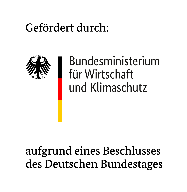Scientists from the Laboratory of Materials and Joining Technology (LWF) at the University of Paderborn, together with six other project partners, are developing eco-efficient technology components for innovative metallic fuselage structures for aircraft with a reduced CO2 footprint as part of the aeronautics research program VI-2. GRETA, which is funded by the BMWK to the tune of €14 million, focuses on efficient manufacturing and production processes for the environmentally friendly construction and operation of aircraft. In addition to the university, the civil aircraft division of Airbus in Germany and other research institutions such as DLR and Fraunhofer are also involved in the project.
In the sub-project being worked on by the LWF, the research approach is to achieve an increase in efficiency and thus a reduction in the costs of the joining process by simplifying the process sequence for setting self-piercing fasteners. In this simplified process, the pre-hole is no longer created in a separate upstream process step but directly during the joining process, when the fastener punches the hole itself. The process engineering implementation of the desired single-stage joining process is being conceptually developed and then implemented and experimentally validated on a specially constructed joining system.



![[Translate to English:] Verbundpartner des Luftfahrtforschungsprojektes GRETA](/fileadmin-mb/lwf/news/LWF_Pressemitteilung_GRETA_P03.png)